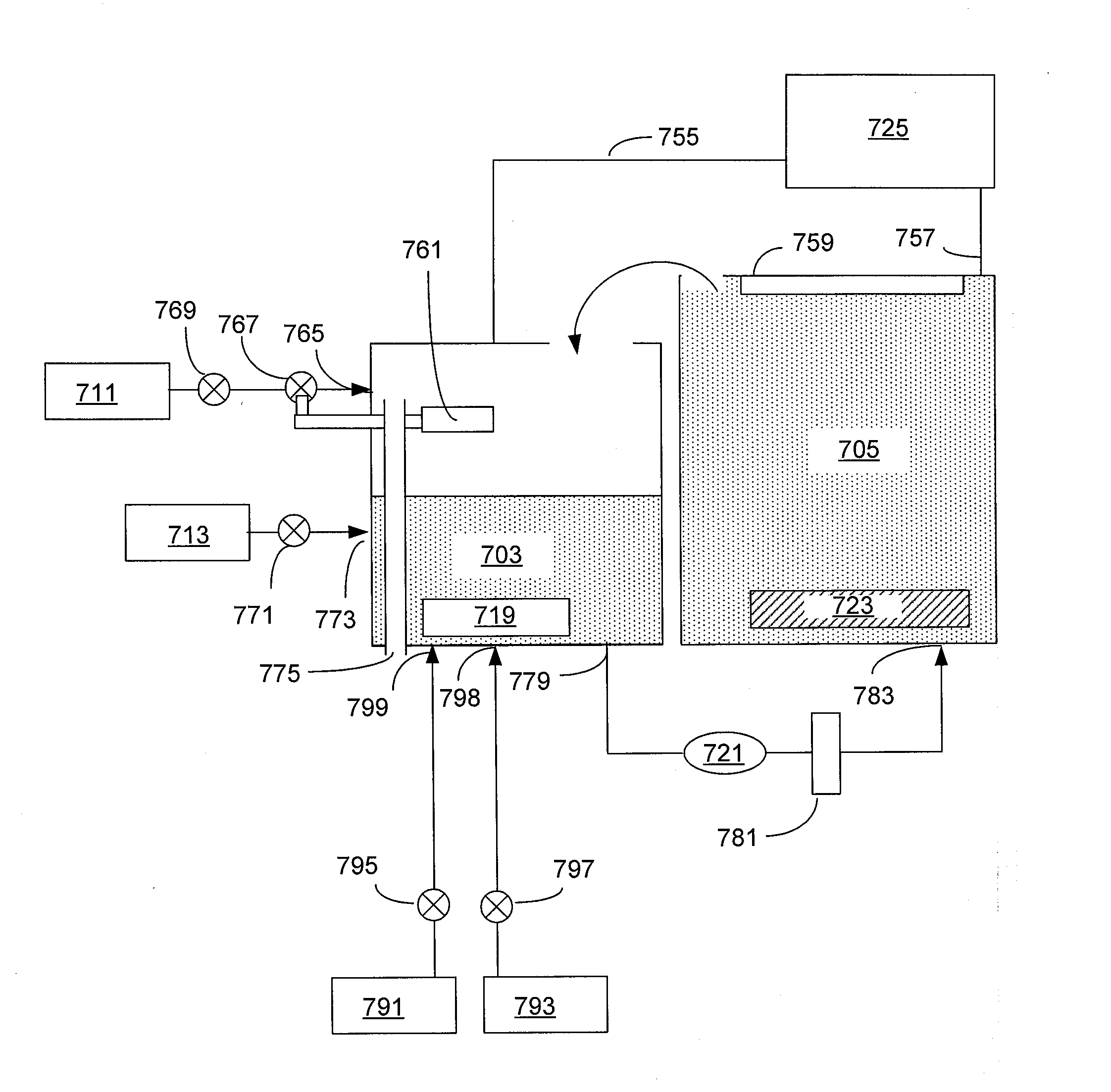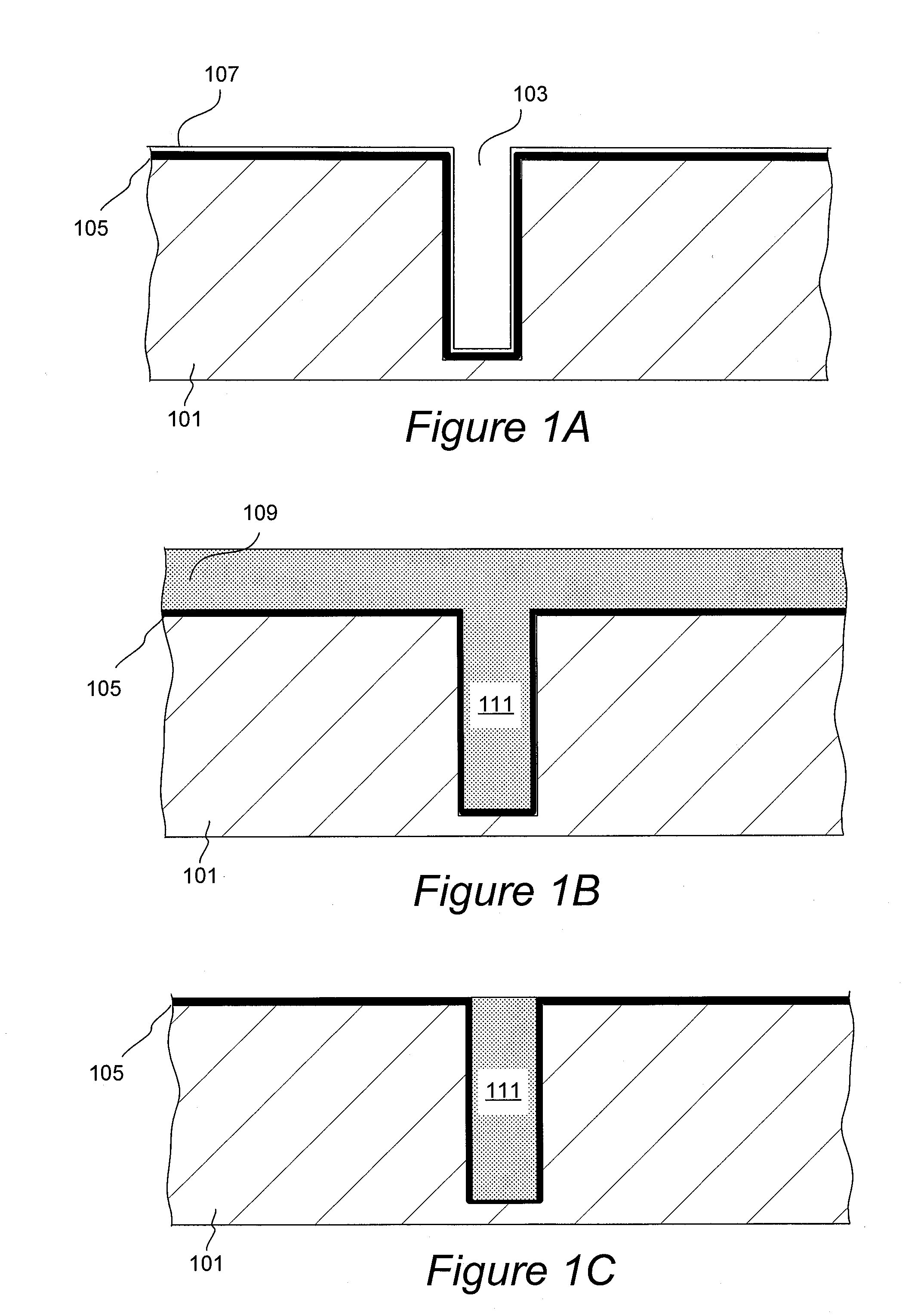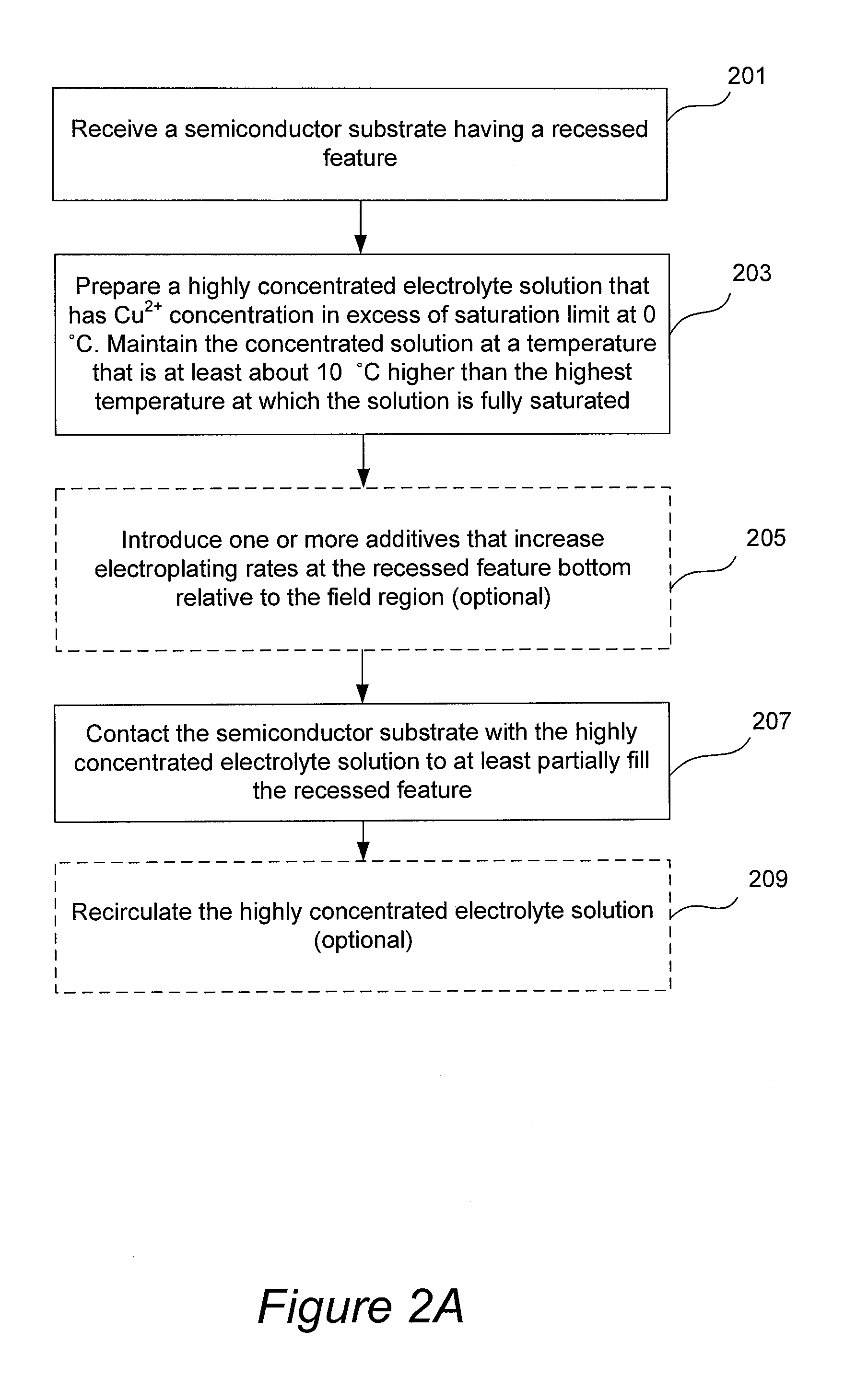Electrolyte Concentration Control System for High Rate Electroplating
a technology of electroplating control and electroplating metals, applied in the direction of electrolysis process, electrolysis components, tanks, etc., can solve the problems of difficult deposition of copper into such structures, limited step coverage, and high cost of precursors, and achieve the effect of increasing the formation of voids and increasing the plating ra
- Summary
- Abstract
- Description
- Claims
- Application Information
AI Technical Summary
Benefits of technology
Problems solved by technology
Method used
Image
Examples
example
[0099]In one illustrative example, a solution containing copper sulfate at Cu2+ concentration of between about 65-85 g / L is directed from source 791 to the reservoir 703. The solution in the reservoir is heated to a temperature of about 35° C., and then sulfuric acid having a concentration of between about 900-1800 g / L is added to the reservoir and is mixed with the solution of copper sulfate to form a concentrated solution having 60-80 g / L Cu2+ and between about 5-50 g / L sulfuric acid. The resulting concentrated solution is directed to the plating cell 705, where copper is electrodeposited on the substrate at a temperature of about 30-35° C.
[0100]Although various details have been omitted for clarity's sake, various design alternatives may be implemented. Therefore, the present examples are to be considered as illustrative and not restrictive, and the invention is not to be limited to the details given herein, but may be modified within the scope of the appended claims. For example...
PUM
| Property | Measurement | Unit |
|---|---|---|
| temperature | aaaaa | aaaaa |
| temperature | aaaaa | aaaaa |
| temperature | aaaaa | aaaaa |
Abstract
Description
Claims
Application Information
 Login to View More
Login to View More - R&D
- Intellectual Property
- Life Sciences
- Materials
- Tech Scout
- Unparalleled Data Quality
- Higher Quality Content
- 60% Fewer Hallucinations
Browse by: Latest US Patents, China's latest patents, Technical Efficacy Thesaurus, Application Domain, Technology Topic, Popular Technical Reports.
© 2025 PatSnap. All rights reserved.Legal|Privacy policy|Modern Slavery Act Transparency Statement|Sitemap|About US| Contact US: help@patsnap.com



